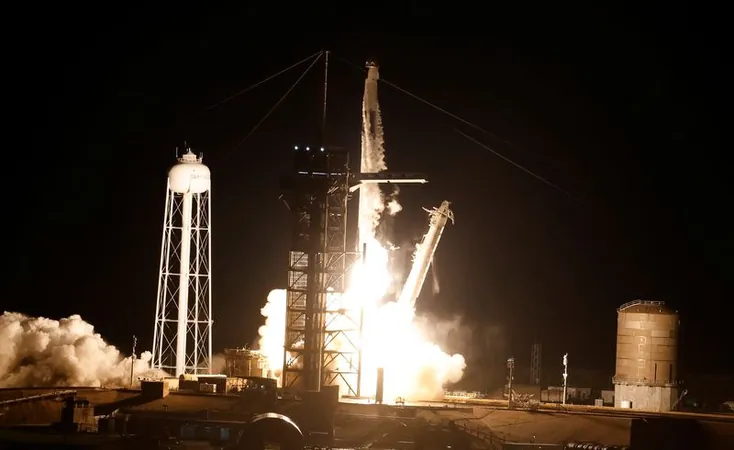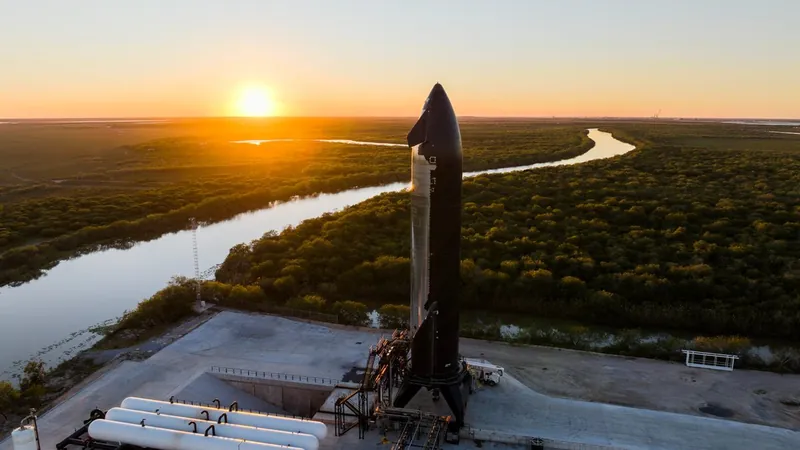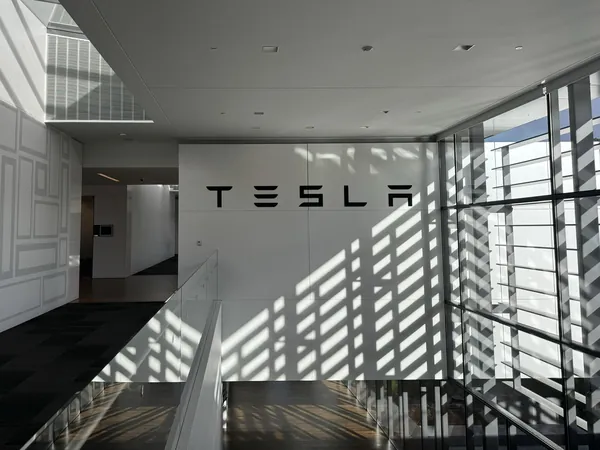
Major Power Outage at SpaceX During Historic Spacewalk Raises Safety Concerns
2024-12-17
Author: Olivia
Major Power Outage at SpaceX During Historic Spacewalk Raises Safety Concerns
In a shocking revelation, a September power outage at SpaceX's California facility interrupted mission control for over an hour during the monumental Polaris Dawn mission, which featured the first-ever private spacewalk in history. This alarming incident has now ignited discussions about the safety protocols of private space operations.
The Polaris Dawn mission saw billionaire Jared Isaacman, along with fellow private astronauts, take a leap into the cosmos. Their mission not only aimed to push the boundaries of space exploration but also coincided with Isaacman’s nomination by President Donald Trump to head the National Aeronautics and Space Administration (NASA).
According to insiders, the outage, which had not previously been disclosed, left SpaceX mission control temporarily powerless to manage the Dragon spacecraft circling Earth. However, the astronauts remained safe and could still communicate via the Starlink satellite network, a testament to the innovative technologies employed by SpaceX.
“Losing command and control during a mission is a critical issue,” one source emphasized. “Mission operators are there to act quickly in emergencies. Without that ability, the risks multiply.” Questions linger regarding how this incident reflects on the disclosure practices of private aerospace firms and if conflicts of interest within the upcoming Trump administration might skew regulatory oversight.
It remains unclear whether SpaceX informed the Federal Aviation Administration (FAA) about the outage. Nevertheless, a source indicated that NASA was promptly notified due to the overlap with a subsequent manned mission they were planning. SpaceX reassured NASA that the outage was resolved swiftly and would not impact future operations.
NASA has been reported to maintain a close relationship with SpaceX given its frequent collaboration, yet officials have declined to comment on this specific event. The FAA, while lacking oversight for in-space activities, reiterated its stance on the regulation of commercial human spaceflight.
The lack of rigid safety standards for private space missions raises concerns. Currently, a Congressional moratorium established in 2004 eliminates the requirement for private companies to disclose in-orbit incidents, prioritizing competitive advantages over safety. Critics, including experts from RAND Corporation, argue that transparency is vital for the advancement and safety of the industry.
The September power outage was attributed to a leak in a cooling system at SpaceX's Hawthorne facility, leading to a power surge that disabled mission control. A lack of documented backup procedures further delayed remediation efforts, causing unexpected vulnerability during a significant mission.
While the Polaris Dawn spacewalk has been celebrated as a success in the commercial space sector, this incident has cast a shadow of concern over operational safety. SpaceX CEO Elon Musk, who has vocally criticized government regulations in the past, is poised for a significant role in the Trump administration’s efficiency commission, where his decisions could profoundly affect NASA and the FAA.
Isaacman's position as a potential NASA leader is notably complicated by his extensive ties to SpaceX, including major financial investments through his company, Shift4 Payments. Should Isaacman ascend to the NASA role, experts warn that his strong relationships with the company could lead to ethical dilemmas, particularly concerning astronaut safety.
As the landscape of commercial space exploration evolves, it remains crucial for stakeholders to prioritize transparency and accountability to ensure the safety of future missions. As these developments unfold, one must keep a keen eye on the impact of such incidents on the industry's integrity and the future of human spaceflight.









 Brasil (PT)
Brasil (PT)
 Canada (EN)
Canada (EN)
 Chile (ES)
Chile (ES)
 España (ES)
España (ES)
 France (FR)
France (FR)
 Hong Kong (EN)
Hong Kong (EN)
 Italia (IT)
Italia (IT)
 日本 (JA)
日本 (JA)
 Magyarország (HU)
Magyarország (HU)
 Norge (NO)
Norge (NO)
 Polska (PL)
Polska (PL)
 Schweiz (DE)
Schweiz (DE)
 Singapore (EN)
Singapore (EN)
 Sverige (SV)
Sverige (SV)
 Suomi (FI)
Suomi (FI)
 Türkiye (TR)
Türkiye (TR)